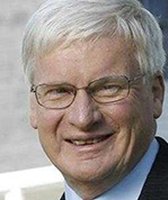Stand up for the facts!
Our only agenda is to publish the truth so you can be an informed participant in democracy.
We need your help.
I would like to contribute

How much Wisconsinites' income has grown has been a bone of contention between Gov. Scott Walker and challenger Mary Burke.
Alongside jobs, Gov. Scott Walker and his challenger, Mary Burke, have sparred over how Wisconsinites have fared in terms of wages and income.
Here's a look at how we've rated some of the key claims on that topic.
* * *
"Wisconsin is #1 in the Midwest for personal income growth over the year."
-- Scott Walker, in a July 30, 2014 tweet
Sign up for PolitiFact texts
True: The governor correctly identified a good-news trend that has seen Wisconsin boost its status from a laggard to a leader on total personal income, including wages, property income and government assistance.
* * *
Wisconsin is "dead last in income growth" among midwestern states during Gov. Scott Walker’s term.
-- Various bloggers, August 14, 2014
True: The quarterly figures did put Wisconsin at the bottom, based on the starting point endorsed by the agency that compiled the information.
* * *
Under Scott Walker’s policies, "the typical Wisconsin family has actually seen their real income drop by nearly $3,000 in the last four years."
-- Mary Burke, in the Oct. 10, 2014, debate
Mostly False: While median household income in Wisconsin has fallen $2,743 in four years, most of the drop occurred before Walker took office in 2011.
* * *
"Jobs that involve the minimum wage are overwhelmingly jobs for young people starting out in the workforce."
-- Walker, Jan. 6, 2014 interview
False: Walker made this claim while speaking against a minimum-wage hike. The best estimates are that 24 percent to 55 percent of such jobs are held by teenagers and young adults. That’s a lot, and from a relatively small component of the overall hourly-wage workforce, but Walker’s use of "overwhelming" strongly suggested that a very large majority of those jobs are held by young people.
* * *
"In Wisconsin, a woman only earns 80 cents for every $1 a man earns."
— Burke, April 8, 2014 in a news release
Mostly True: Her claim was slightly conservative, in that census data put the figure at 78 cents. The gap was not necessarily due to discrimination -- a conclusion some might have drawn because Burke's statement made reference to pay discrimination.
* * *
Gov. Scott Walker’s repeal of a 2009 law has left Wisconsin as "one of five states without an equal pay law protecting women from gender discrimination in their paycheck."
-- Burke, April 5th, 2014 in a campaign email
False: Walker did reverse an attempt to toughen up Wisconsin law, but its protections against gender discrimination in workplace pay date back decades. The governor’s 2012 action left those in place, albeit without tougher penalties for employers.
Also in this series: Jobs, taxes and state budget, education, business growth, higher education and miscellaneous items.
Our Sources
PolitiFact Wisconsin items as noted.





















































